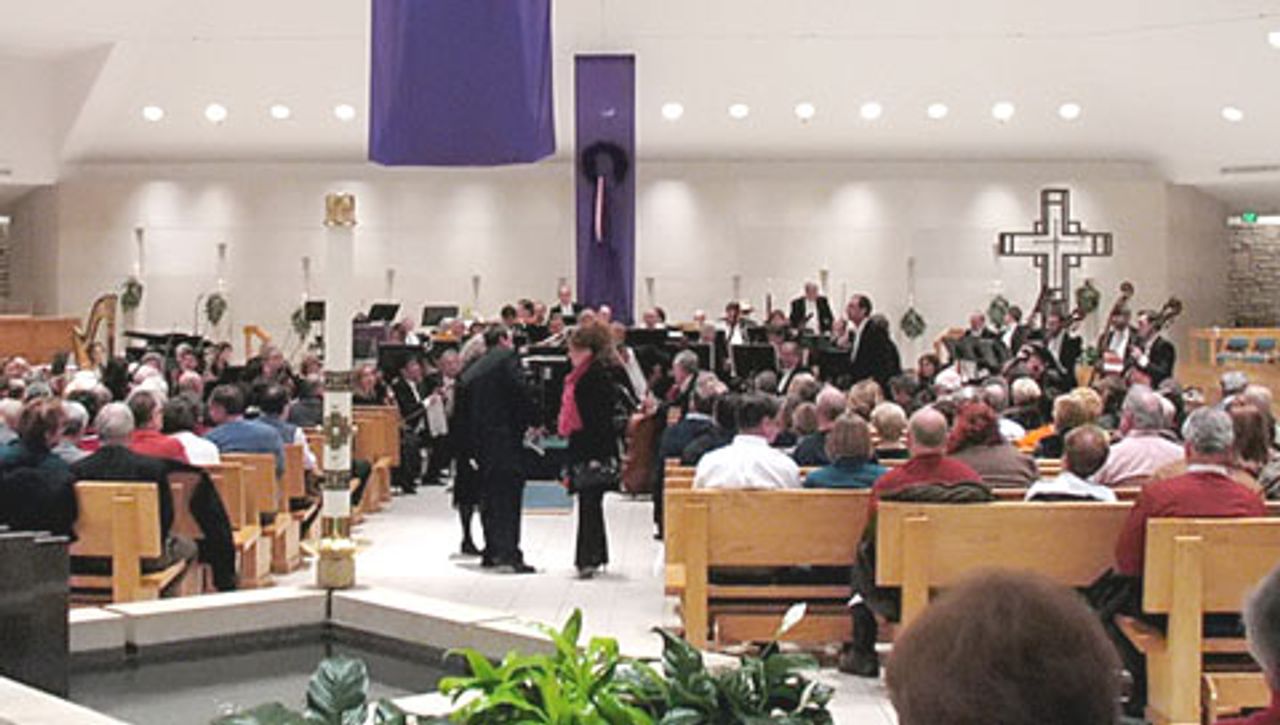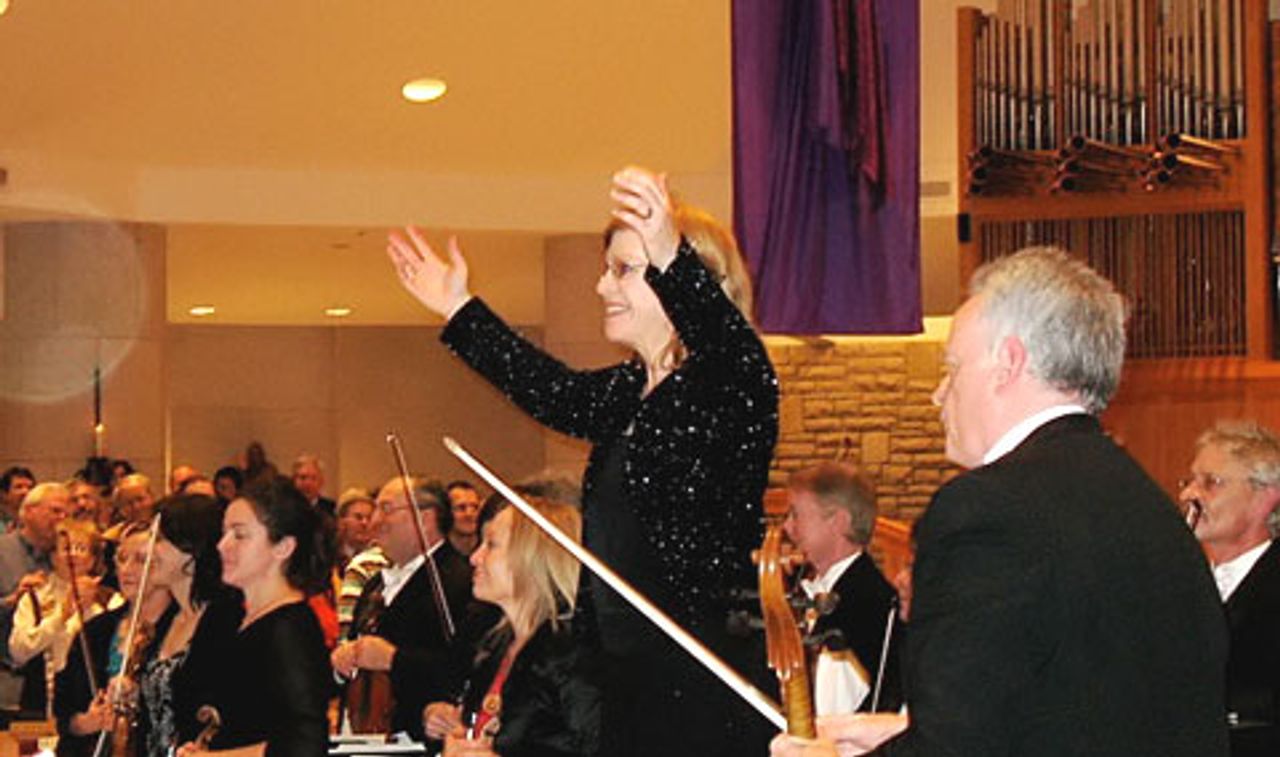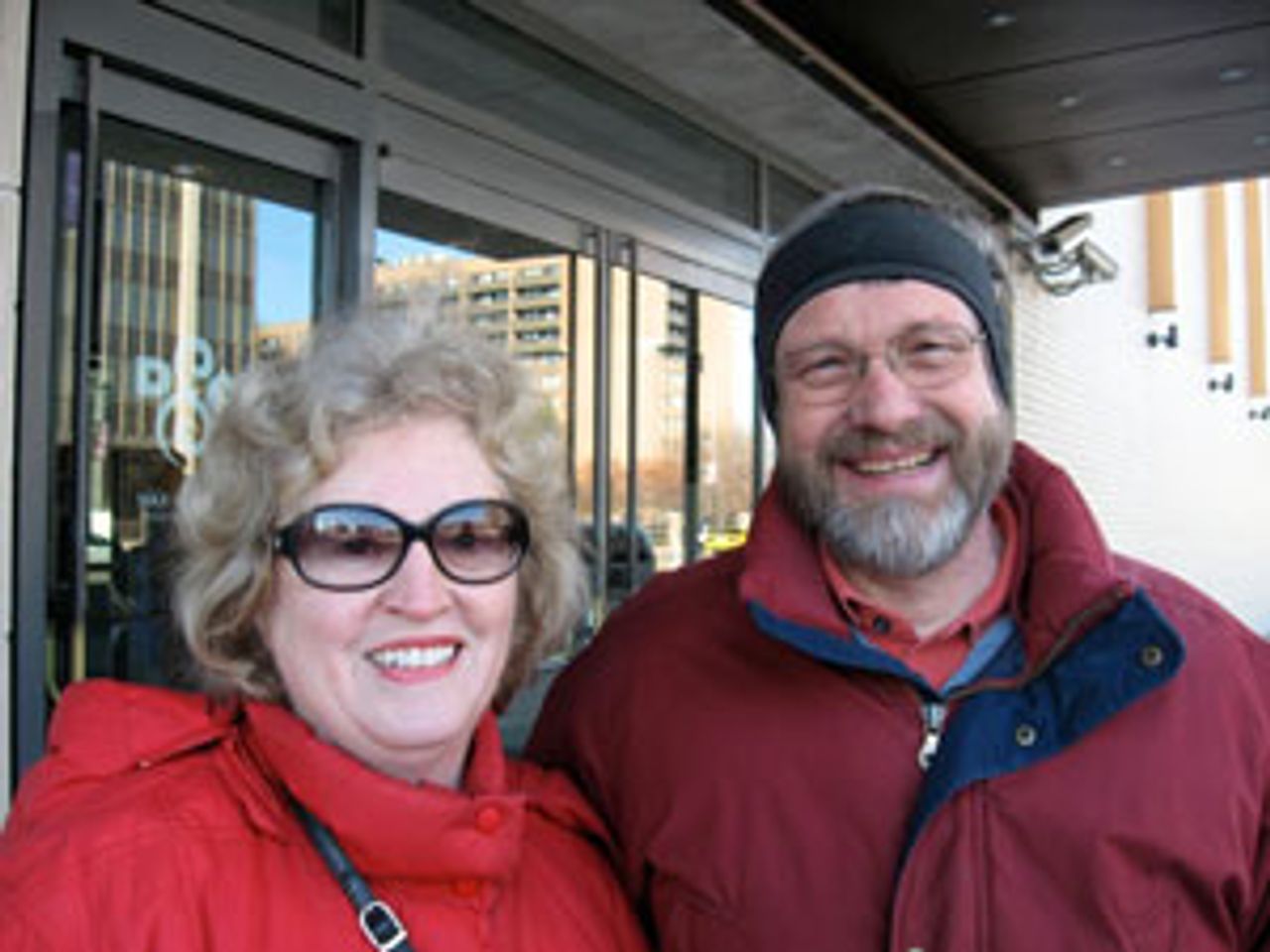With the strike by musicians of the Detroit Symphony Orchestra in its tenth week, management is reiterating its position that orchestra members must accept huge cuts in compensation. In an “open letter to the communities of metro Detroit,” released at DSO management’s annual meeting Thursday, the DSO’s 23-member executive committee said it insists on a “fiscally responsible” settlement to the walkout that began October 4.
The DSO musicians are resisting management demands for a curtailed season, a 33 percent cut in salary, a reduction in pensions and other benefits and the assignment of orchestra members to all kinds of non-performance related duties without extra compensation. The cuts would inevitably result in a drastic deterioration in the quality of the orchestra, currently considered one of the best in the United States.
In response to management’s intransigence orchestra members are stepping up their efforts to win support, with more concerts and pickets scheduled over the coming weekend.
In a sign of widening public sympathy for the musicians, DSO Conductor Leonard Slatkin recently ended his silence on the strike, issuing a statement on his web site, which, though carefully worded, indicated his frustration at management’s refusal to reach a settlement.
At the DSO annual meeting the keynote speaker, Bruce Coppock, a retired orchestra executive, gave a lengthy presentation in support of management’s hard line. He rejected the claim that “the labor conflict is between those who would protect artistic quality and those who would destroy it.” Instead, he presented management’s attack on the musicians as the cornerstone of an innovative vision, designed to bring the orchestra closer to the people. He disparaged the current structure of the DSO as the “Carnegie Hall imperative,” where success was measured by “pay scales and length of season.” He called for its reinvention as a “community orchestra.”
This is a prescription for downsizing the number of musicians and performances and transforming the DSO essentially into a part-time orchestra. At the same time, the suggestion that the musicians are unresponsive to the needs of the Detroit community is blatantly false. Musicians engage in a wide variety of activities, including performing in small ensembles and teaching. Stripped of sugary language, what is being said is that the musicians will be expected to be on call to do many of these tasks for free.
The crisis facing the DSO is acute. The orchestra reports a deficit of $8.8 million for the fiscal year ending August 31. It has seen a decline in ticket sales and a sharp fall in corporate and private donations. The solution proposed by DSO management is typical of the response of the ruling elite everywhere, to force musicians and staff to take massive cutbacks.
The offer in recent negotiations by the players’ union, the American Federation of Musicians, for additional concessions on top of the 22 percent pay reduction it has already offered has only hardened management’s line. With the holidays approaching, no talks are currently scheduled.
 The December 3 concert at St. Hugo’s Catholic Church in Bloomfield Hills, Michigan
The December 3 concert at St. Hugo’s Catholic Church in Bloomfield Hills, MichiganMusicians are issuing a call to the public to join them in pickets of replacement concerts scheduled by management at the Max M. Fisher Music Center; a 3 p.m. December 12 concert featuring the group Bowfire, a 8 p.m. December 14 concert with the Manhattan Transfer and an 8 p.m. December 21 Concert with the Canadian Brass.
DSO musicians have support concerts set for December 12 at St. Anne’s Catholic Church in the working class suburb of Warren and December 14 at Stoney Creek High School in Rochester Hills. Both concerts will include a variety of holiday themed classical selections, including the concerto for two trumpets by Antonio Vivaldi and selections from the Nutcracker by Tchaikovsky.
 Guest conductor Emily Freeman Brown
Guest conductor Emily Freeman BrownA December 3 concert at St. Hugo’s Catholic Church in Bloomfield Hills drew another near capacity audience. Guest conductor Emily Freeman Brown led the DSO musicians in selections from Vivaldi, Humperdink, Tchaikovsky, Bizet and other classical composers. Brown, who donated her services, is conductor of the Bowling Green Philharmonia and Opera Theater at Bowling Green State University in Ohio.
 Marcy Chanteaux and Larry Hutchinson
Marcy Chanteaux and Larry HutchinsonThe WSWS spoke to several musicians leafleting the DSO annual meeting December 9 at Orchestra Hall. Marcy Chanteaux, assistant principal cellist in the DSO said, “management sees its mission as destroying this orchestra. What has [DSO President] Anne Parsons accomplished? We have gone from 103 positions under [Conductor Antal] Durati to 81. Her vision is a small municipal orchestra.”
“They are treating us like a charity,” added bassist Larry Hutchinson.
A veteran violinst told the WSWS, “It is not just about economics, it’s the other things they want us to do. At one of our first meetings we asked management, ‘If the roof needs repairs should we be expected to do that?’ They said, ‘Yes, if you can repair the roof we can have you repair the roof.’ If they tell us to do custodial duties can they fire the custodians and have us do the cleaning? Could they fire the accounting department?”
The WSWS also recently spoke to students at the Detroit School of Arts, a public high school affiliated with the Detroit Symphony Orchestra. Cecily, a student in visual communications, emphasized the importance of the orchestra for young people in Detroit. “My sister has been playing violin since eighth grade. She takes lessons from a DSO musician.” She said the destruction of the DSO “would be a huge loss. It is a part of the kids’ future. People strive to play in the DSO. We have some kids from the school that go into the DSO.”
